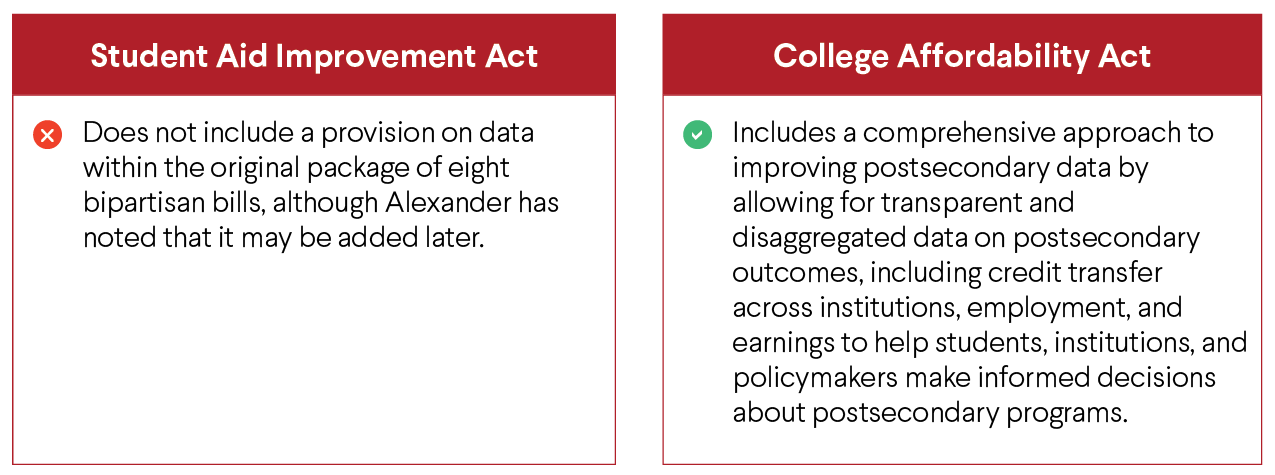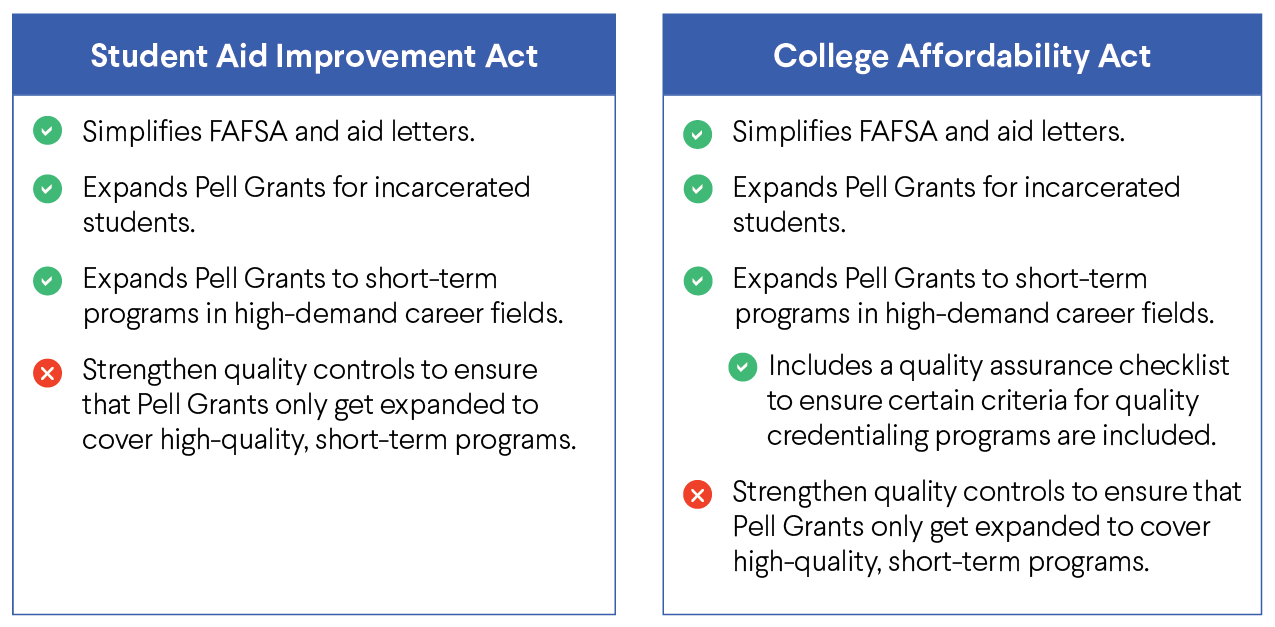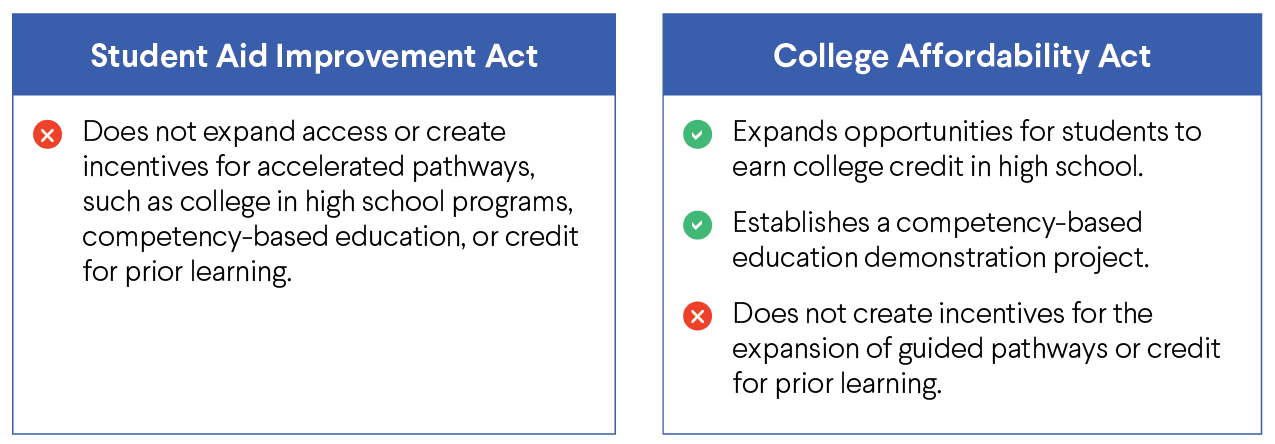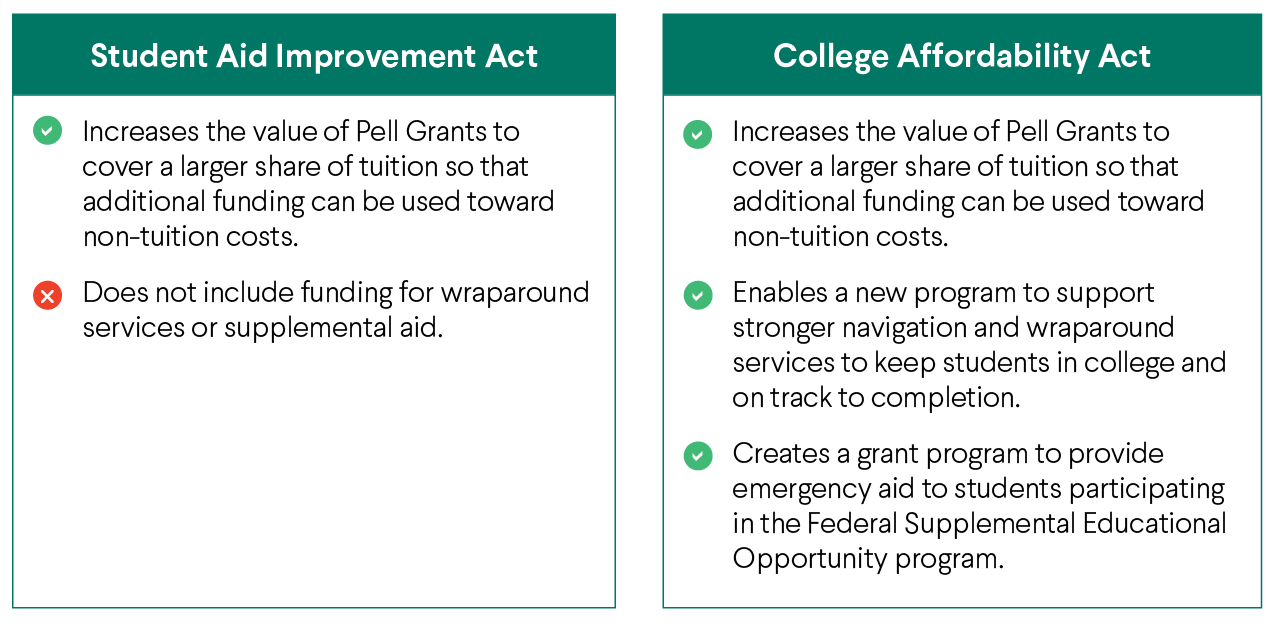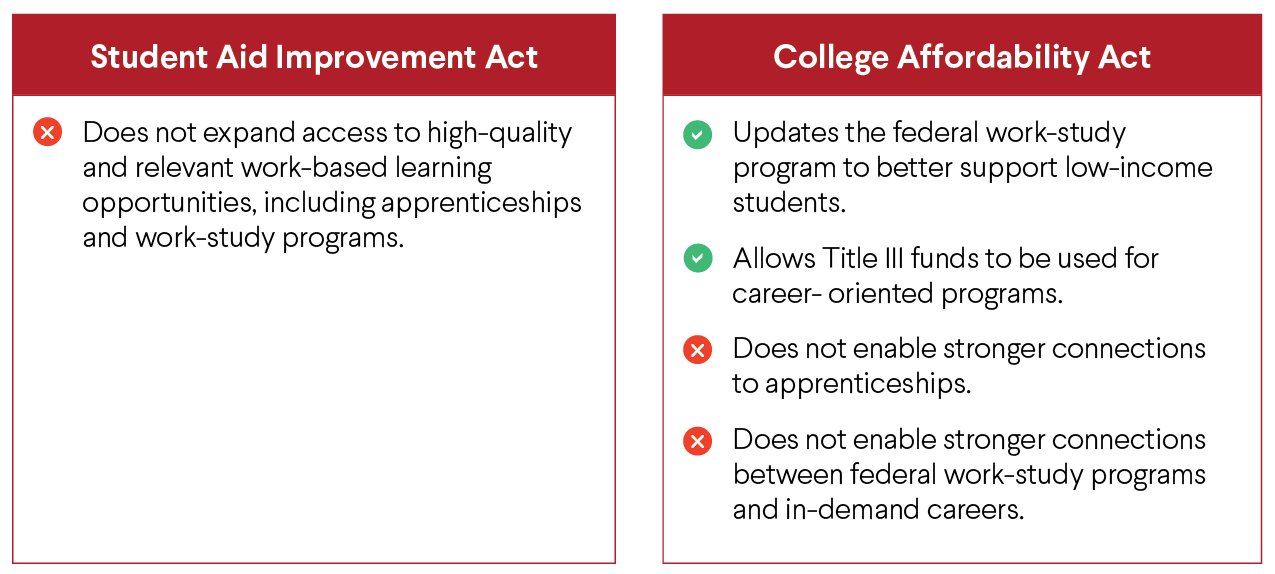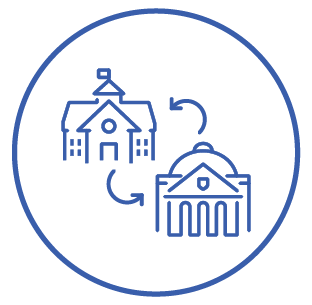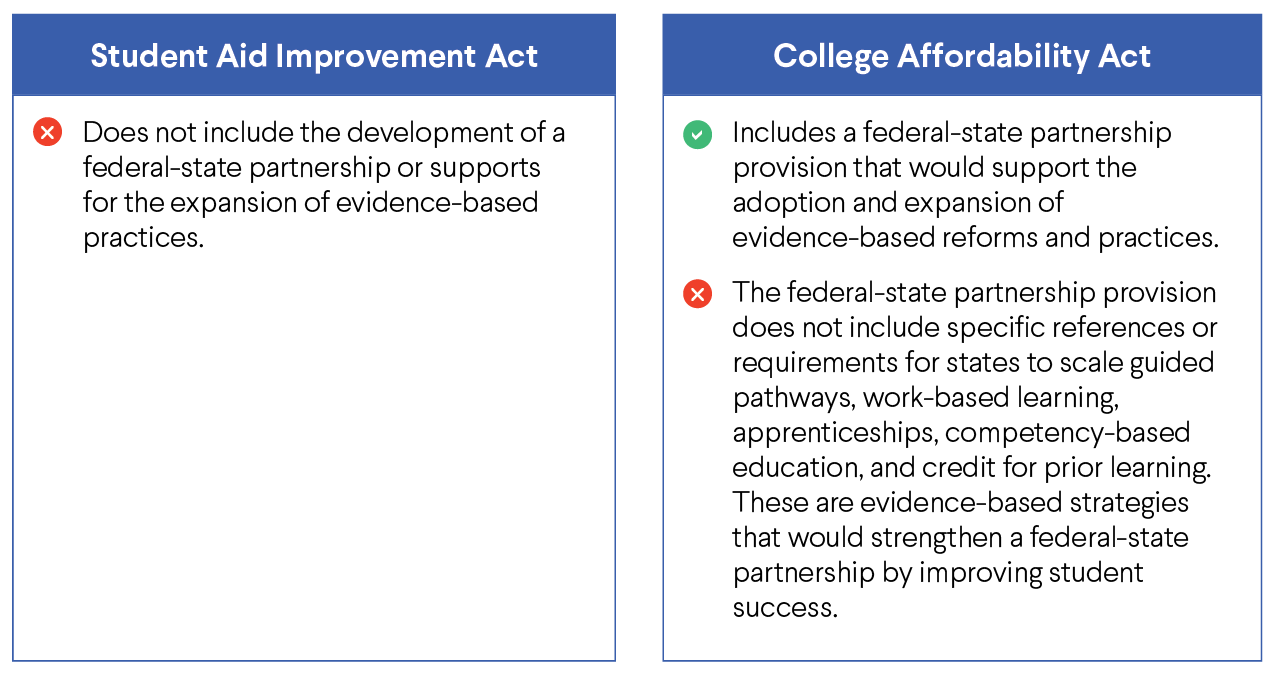There’s been a flurry of activity in Congress in recent months over proposals to update the Higher Education Act (HEA), the federal law governing higher education across the country.
In September, Senator Lamar Alexander, chair of the Senate Health, Education, Labor, and Pensions Committee, introduced the Student Aid Improvement Act of 2019, a package of eight bipartisan proposals that would update components of the HEA. In October, Representative Bobby Scott, chair of the House Committee on Education and Labor, introduced the College Affordability Act (CAA), a comprehensive vision for updating HEA that is supported by House Democrats. The House committee passed the CAA on October 31 and it advanced to the full House for consideration.
Since the introduction of these two bills, JFF has taken a closer look at how they line up against our own higher education recommendations, which are designed to transform the nation’s postsecondary education system to keep up with the changing demands of the U.S. economy.
Here’s how the two bills fare:



